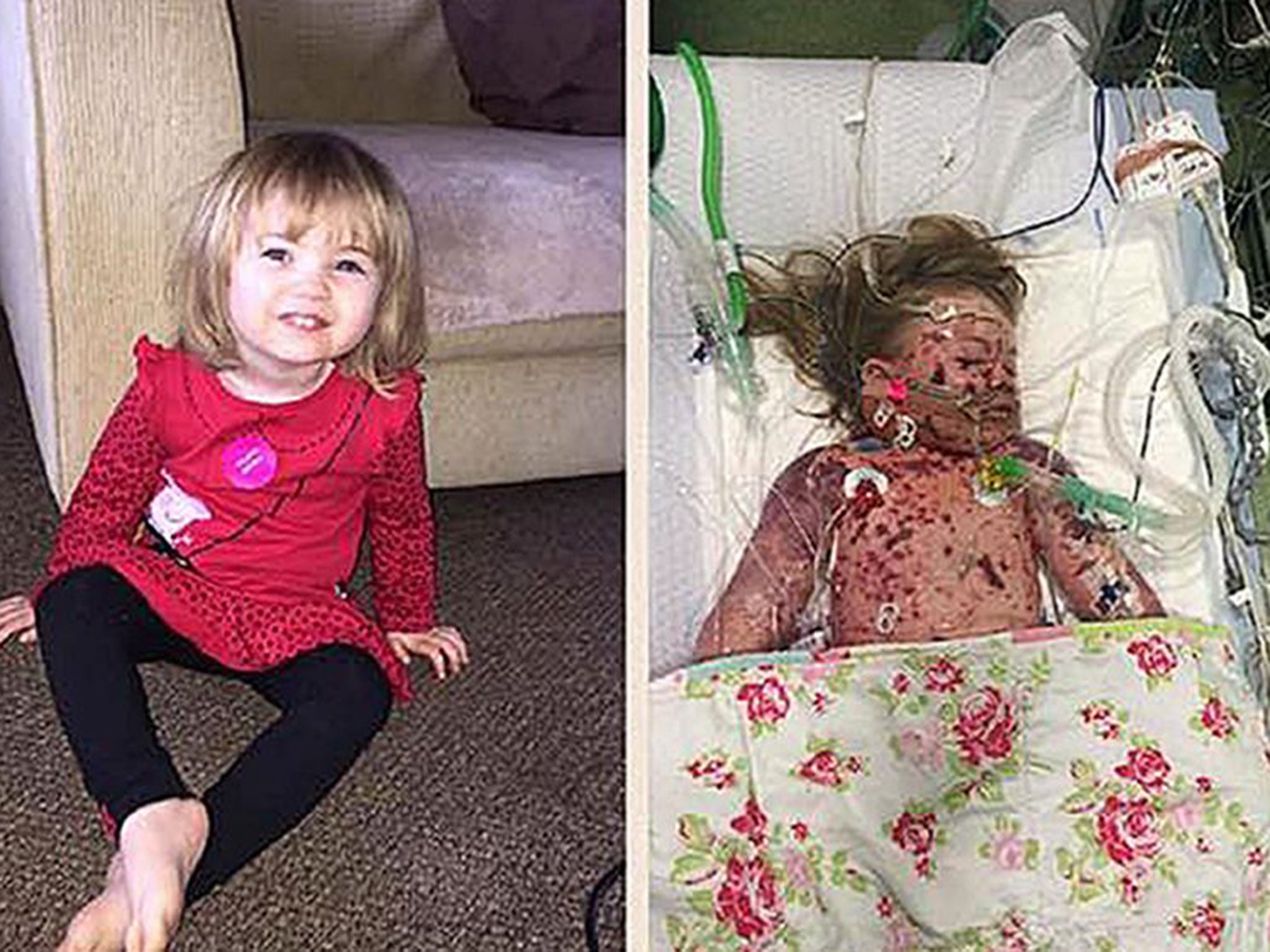Meningitis B: Government rejects petition for vaccine to be made available for all children
Offering the vaccine to all children is 'not cost effective' and would be a waste of NHS money, the Government said

Your support helps us to tell the story
From reproductive rights to climate change to Big Tech, The Independent is on the ground when the story is developing. Whether it's investigating the financials of Elon Musk's pro-Trump PAC or producing our latest documentary, 'The A Word', which shines a light on the American women fighting for reproductive rights, we know how important it is to parse out the facts from the messaging.
At such a critical moment in US history, we need reporters on the ground. Your donation allows us to keep sending journalists to speak to both sides of the story.
The Independent is trusted by Americans across the entire political spectrum. And unlike many other quality news outlets, we choose not to lock Americans out of our reporting and analysis with paywalls. We believe quality journalism should be available to everyone, paid for by those who can afford it.
Your support makes all the difference.The Government has rejected a petition signed by 817,811 people for all children under the age of 11 to be given the meningitis B vaccine.
Offering the vaccine to all children is "not cost effective" and would be a waste of NHS money, the Department of Health said in their response to the petition.
Vaccinations are currently only available on the NHS to babies aged two to five months old - those wanting to vaccinate older children must pay privately.
They were introduced in September 2015 for babies born on or after 1 July, 2015, and involve a series of three injections at two months, four months and one year old.
Meningitis B is the cause of 90 per cent of all meningococcal infections in young children, according to the NHS. It is an infection of the protective membranes around the brain and spinal column and can lead to severe brain damage, amputations and death.

The most-popular petition in parliamentary history came after the charity Meningitis Now released images of two-year old Faye Burdett, who died of the idsease after fighting the infection for 11 days.
“This is a photo of Faye, two years old, who sadly lost her life to this dreadful disease," her mother said in a statement.
"We campaign for change in her memory. All children are at risk from this terrible infection."
Former England rugby union captain Matt Dawson also revealed his toddler son suffered "two weeks of hell" after being struck by the disease. He urged others to sign the petition on social media.
In its response, the Department of Health said it was following the expert advice of its Joint Committee on Vaccination and Immunisation (JCVI).
It said: "With this programme, our priority is to protect those children most at risk of MenB, in line with JCVI’s recommendation.
"The NHS budget is a finite resource. It is therefore essential that JCVI’s recommendations are underpinned by evidence of cost-effectiveness.
"Offering the vaccine outside of JCVI’s advice would not be cost effective, and would not therefore represent a good use of NHS resources which should be used to benefit the health and care of the most people possible."
It added: "When any new immunisation programme is introduced, there has to be a cut-off date to determine eligibility.
"While this is extremely difficult for parents whose children aren’t eligible there is no other way of establishing new programmes to target those at highest risk without introducing inequalities."
The issue is still scheduled to be debated in the House of Commons.
Join our commenting forum
Join thought-provoking conversations, follow other Independent readers and see their replies
Comments